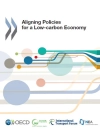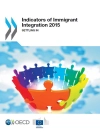This book discusses issues such as global financial crisis and global governance, food security, energy sustainability, the global financial system, trade and protectionism, and growth and employment. Since the outbreak of the financial as well as national debt crises in the Euro zone, the focus of the G20 has shifted back to addressing short-term issues. These issues range from the dynamic effects of global imbalances and the appropriate degree of financial sector regulation to questions of austerity versus growth and the lack of a comprehensive framework for managing the international monetary system. A further issue is the relevance of the G20 agenda for emerging market economies. Global economic recovery still remains fragile and downside risks to global growth remain. Additionally, much of the agenda of the Seoul Development Consensus for shared growth launched in 2010 has yet to be fulfilled. A key discussion point in the book, therefore, is how to make a tangible and significant difference in peoples’ lives by implementing an agenda of inclusive growth.
Inhaltsverzeichnis
Forward by H.K. Holdaway, A/g Executive Director (International) Australian Treasury.-
Preface by Mr. Montek Singh Ahluwalia.-
Chapter 1. Introduction.-
Part I: The Global Financial Crisis – Revisiting Global Governance .-
Chapter 2. Revisiting Global Governance (Soumya Kanti Ghosh, Bibekananda Panda).-
Chapter 3. The G20 and the dilemma of asymmetric sovereignty: Why multilateralism is failing in crisis prevention (Heribert Dieter).-
Part II: Achieving Global Food Security – How can the G-20 Help? .-
Chapter 4. Ensuring Food Security: Challenges and Options (Ashok Gulati, Shweta Saini).-
Chapter 5. Implications of India’s National Food Security Act (Reetika Khera).-
Chapter 6. Determinants of Food Security in Sub-Saharan Africa, South Asia and Latin America (Simrit Kaur, Harpreet Kaur).-
Chapter 7. Combating Food Insecurity: Implications for Policy (Simrit Kaur, Harpreet Kaur).-
Chapter 8. Food security and food price volatility (Jörg Mayer).-
Part III: The Road to Energy Sustainability – Towards Third Industrial Revolution .-
Chapter 9. Third Industrial Revolution and India’s Approach to Sustainable Energy Development (Ramprasad Sengupta).-
Part IV: Reforming the Global Financial System – Implications for Long Term Investment Finance.-
Chapter 10. Financial Regulatory Reform: A Mid-term Assessment from an Emerging Market Perspective (Alok Sheel, Meeta Ganguly).-
C hapter 11. Cross-border spillovers of financial stress shocks: evidence and policy implications (Wang Chen, Takuji Kinkyo).-
Chapter 12. Is India Ready for Inflation Targeting? (Abhijit Sen Gupta, Rajeshwari Sengupta).-
Part V: Trade and Protectionism: The Emerging Role for G20 .-
Chapter 13. Trade and Protectionism- The Emerging Role for G20 (Anwarul Hoda).-
Chapter 14. G-20, Multilateralism and Emerging Mega-trade Blocs: Options for India and Asian Developing Countries (Nagesh Kumar).-
Chapter 15. Global Production Sharing and Asian Trade Patterns: Implications for the Regional Comprehensive Economic Partnership (RCEP) (Prema-chandra Athukorala).-
Part VI: Growth and Employment .- Chapter 16. The Growth Experience in India: Is there A Hidden Model? (Pronab Sen).
Über den Autor
Rajat Kathuria is Director and Chief Executive at Indian Council for Research on International Economic Relations (ICRIER), New Delhi. He has over 20 years experience in teaching and 15 years experience in economic policy, besides research interests on a range of issues relating to regulation and competition policy. He has worked with the World Bank, Washington DC as a Consultant and carried out project assignments for a number of international organizations, including ILO, UNCTAD, Lirne Asia, World Bank and ADB. He has published in international and national journals, besides in popular magazines and newspapers. He has served on the Board of Delhi Management Association and is currently an independent director on the Microfinance Institutions Network (MFIN) and on several government committees. He has an undergraduate degree in Economics from St. Stephens College, a Masters from Delhi School of Economics and a Ph D degree from the University of Maryland, College Park.
Neetika Nagpal was a consultant with ICRIER and senior consultant with Ernst & Young in its tax policy and controversy practice. She holds a postgraduate in economics and finance from Warwick Business School and an undergraduate in economics from Delhi University. She has published in areas of international trade and tax policy. She is currently pursuing a Juris Doctor from University of New South Wales, Australia.












